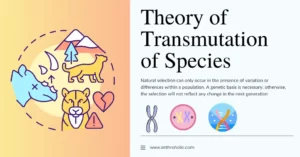AI Answer Evaluation Platform Live Now. Try Free Answer Evaluation Now
Bronislaw Malinowski
Before Bronisław Malinowski, anthropologists wrote about cultures from secondhand reports-books, colonial documents, and travelers’ tales. After Malinowski, they had to live among the people they studied, speak their language, and understand their world from within.

Often called the father of modern anthropology, Malinowski didn’t just reshape a discipline-he redefined what it meant to do fieldwork. His immersive study of the Trobriand Islanders during World War I set the gold standard for ethnographic research and gave birth to the method of participant observation.
But Malinowski was more than a brilliant researcher. He was a sharp theorist, a provocative writer, and a charismatic teacher whose influence can still be felt in anthropology classrooms today. His groundbreaking works on magic, kinship, and the Kula exchange laid the foundation for functionalism, one of the core theories of 20th-century anthropology.
Early Life and Education
Bronisław Kasper Malinowski was born on April 7, 1884, in Kraków, then part of the Austro-Hungarian Empire (now Poland). Raised in an educated, upper-middle-class family, Malinowski showed early academic promise. His father was a professor of Slavic philology, and his mother came from an intellectual background-both influences that shaped his rigorous scholarly mindset.
He initially studied physics and mathematics at Jagiellonian University in Kraków. However, persistent health issues and a growing fascination with human societies led him to pivot toward the social sciences. In 1910, Malinowski moved to the London School of Economics (LSE), where he studied under prominent anthropologist C. G. Seligman. There, he earned his doctorate in 1916.
It was during this period that Malinowski began to challenge the prevailing norms of anthropology. Most scholars of his day relied on secondhand accounts to describe “primitive” societies. Malinowski believed that real understanding could only come from firsthand, immersive research.
“The final goal of which an ethnographer should never lose sight… is to grasp the native’s point of view, his relation to life, to realize his vision of his world.” -Malinowski
Revolutionizing Fieldwork: The Trobriand Islands
Malinowski’s big break came in 1914 when he traveled to Papua New Guinea and the Trobriand Islands for field research. Ironically, it was World War I that kept him there-stranded as an “enemy alien” (due to his Austro-Hungarian citizenship) under Australian surveillance, he was allowed to continue his fieldwork rather than be interned.
Over the next two years, Malinowski immersed himself in the daily life of the Trobriand Islanders, a matrilineal society with rich social, economic, and spiritual traditions. He learned the native language, lived among the people, and took detailed notes on everything from magic spells and fishing rituals to sexual norms and political structures.
This method-what he later called “participant observation”-became the cornerstone of modern ethnographic fieldwork. Instead of observing from a distance or relying on interpreters, Malinowski insisted that anthropologists must become a part of the social fabric they study.
His vivid, often literary descriptions of island life set a new standard for anthropological writing. His most famous book, Argonauts of the Western Pacific (1922), offered not only rich ethnographic detail but a theoretical framework that would redefine anthropology as a social science rooted in direct human experience.
Functionalism and the Science of Culture
Malinowski’s fieldwork didn’t just provide vivid descriptions of island life-it also gave rise to a new anthropological theory: functionalism.
Unlike earlier “armchair anthropologists” who theorized about cultures from afar, Malinowski argued that every cultural institution has a practical function. Whether it’s myth, ritual, or kinship, each element of a society serves to fulfill basic human needs-biological, psychological, or social.
He famously claimed that to understand a cultural practice, one must ask:
“What function does this serve in the lives of the people who practice it?”
This theory shifted anthropology toward holistic, integrative analysis, where customs and beliefs were no longer seen as “primitive” oddities but as adaptive, rational components of a coherent system. Functionalism became a dominant paradigm in British anthropology for decades.
Major Works and the Kula Exchange
Malinowski’s Argonauts of the Western Pacific (1922) remains one of the most influential books in anthropology. In it, he detailed the Kula ring, a complex ceremonial exchange system among the Trobriand Islanders, where shell necklaces and armbands circulated across islands in opposite directions.
What made the Kula remarkable wasn’t its economic utility-it wasn’t about survival or trade-it was about status, trust, and social bonds. Malinowski used this case to demonstrate that economic behavior cannot be understood without accounting for cultural meaning and social obligation.
He followed this with other seminal works:
- The Sexual Life of Savages in North-Western Melanesia (1929), exploring kinship and sexuality
- Coral Gardens and Their Magic (1935), an in-depth look at Trobriand agriculture, magic, and belief systems
These publications combined empirical detail with theoretical innovation, reinforcing his reputation as a fieldwork pioneer and leading theorist of culture.
Teaching, Legacy, and Controversies
In the interwar years, Malinowski became a celebrity academic. As a professor at the London School of Economics, he mentored a generation of influential anthropologists, including Raymond Firth, E. E. Evans-Pritchard, and Audrey Richards. His seminar room became the heart of British social anthropology.
However, Malinowski’s legacy is not without complexity. After his death in 1942, the publication of his personal diaries (A Diary in the Strict Sense of the Term, 1967) shocked the academic world. They revealed personal doubts, cultural biases, and emotional struggles that contrasted sharply with his objective, authoritative tone in published work.
Some critics saw this as evidence of colonial arrogance or hypocrisy. Others argue the diaries humanized him and underscored the emotional intensity of long-term fieldwork.
Enduring Influence on Modern Anthropology
Despite the controversies, Malinowski’s impact remains profound. He established the fieldwork methodology that underpins modern anthropology, proving that understanding a culture requires long-term, immersive, and empathetic engagement.
His insistence on seeing cultures on their own terms laid the groundwork for later movements like cultural relativism and symbolic anthropology. Even in an era of postcolonial critique and digital ethnography, his work remains essential reading for anyone seeking to understand how anthropology became a science of human lives.
Malinowski’s Enduring Mark on Anthropology
Bronisław Malinowski didn’t just document cultures-he transformed the way we study them. With a notebook in hand and an open mind, he embedded himself in the lives of the Trobriand Islanders and gave the world an unprecedented, inside-out view of how human societies function.
His invention of participant observation redefined anthropology, replacing distant theorizing with deep engagement. Through his lens, culture was no longer an exotic curiosity but a coherent, living system-every ritual, exchange, and belief serving a purpose in people’s everyday lives.
Malinowski’s theory of functionalism, his vibrant ethnographic writing, and his relentless push for methodological rigor established fieldwork as anthropology’s cornerstone. His influence shaped generations of scholars, set benchmarks still followed today, and laid the groundwork for cultural understanding that is both respectful and analytically powerful.
While modern scholars continue to critique aspects of his legacy-especially his entanglement with colonial power and his personal contradictions-there is no denying that Bronisław Malinowski changed anthropology forever.
To understand culture, Malinowski taught us, we must live it-one conversation, one ritual, and one relationship at a time.
References
- “Bronisław Malinowski,” Encyclopedia Britannica. https://www.britannica.com/biography/Bronislaw-Malinowski
- “Bronisław Malinowski,” Oxford Bibliographies. https://www.oxfordbibliographies.com/abstract/document/obo-9780199766567/obo-9780199766567-0096.xmlOxford Bibliographies
- “Functionalism – Anthropology,” The University of Alabama. https://anthropology.ua.edu/theory/functionalism/Anthropology
- “Reciprocity & Exchange: The Kula Ring,” Human Relations Area Files. https://hraf.yale.edu/teach-ehraf/reciprocity-exchange-the-kula-ring/HRAF
- “Writing his Life through the Other: The Anthropology of Malinowski,” The Public Domain Review. https://publicdomainreview.org/essay/writing-his-life-through-the-other-the-anthropology-of-malinowski/The Public Domain Review
- “Bronisław Malinowski,” Store norske leksikon. https://snl.no/Bronislaw_MalinowskiStore norske leksikon
- “Bronisław Malinowski,” Dzieje.pl. https://dzieje.pl/kultura-i-sztuka/70-lat-temu-zmarl-antropolog-bronislaw-malinowskidzieje.pl
- “Bronisław Malinowski – Anthropologist in the Field,” Culture.pl. https://culture.pl/en/article/bronislaw-malinowski-anthropologist-in-the-field




